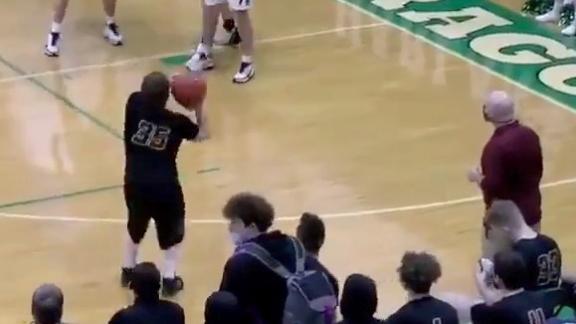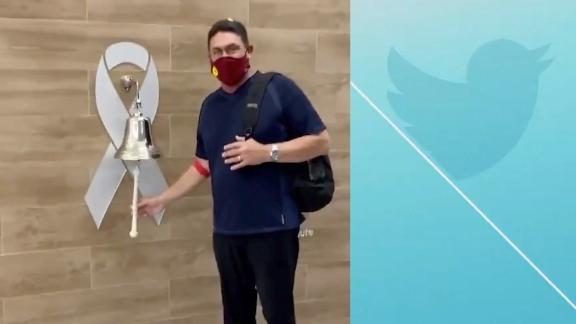Philadelphia, home to one of the most recognizable skateboarding destinations in the world -- Love Park -- is stepping up its laws against skateboarding. City Councilman David Oh recently introduced, on behalf of Mayor Michael Nutter's administration, a bill that would impose greater fines and potential jail time for skateboarders who are caught skateboarding on public works of art or memorials.
Currently, in Philadelphia, damage caused by skateboarding -- like chipped ledges from grinding trucks, wheel marks or even a thin film of paint from a boardslide -- is considered an act of "institutional vandalism" under Title 10 of The Philadelphia Code. The same law that punishes neo-Nazis for painting swastikas on synagogues is being applied to a skateboarder riding the stairs of City Hall.
Title 10 is among the harshest laws regarding skateboarding in the entire country, but the amendment to Title 10 will enforce the punishment of up to 90 days of incarceration or a maximum fine of $2,000 for skateboarding that causes vandalism.
ESPN.com was told by Councilman Oh, "The maximum fine and penalty of 90 days incarceration does not apply to recreational skateboarding. It is for intentional vandalism to memorials and public artwork. It can only be imposed by a judge and that can only happen if the offender requests an administrative appeal. So if someone is skateboarding, Rollerblading or bicycling and using a memorial or public artwork as a platform for extreme type activity, and a police officer tells that person to stop and the rider complies, the maximum fine and penalty does not apply. It is only if the skateboarder, or other rider, refuses to comply and appeals the fine, that a judge may impose the maximum fine and penalty. These fines and penalties are civil and not criminal, so there is no criminal record involved. The time may be less than 90 days and may be at a location such as a local YMCA."
The amendment to Title 10 would move to include works of "public art and memorials" under its protection. Two recent incidents appear to have been catalysts in prompting this amendment: Located on Broad Street, a portion of a public sculpture known as "The Paint Torch," by sculptor Claes Oldenburg, has been refurbished at a reported cost of $10,000 to the city, because of dings and wheel marks from skaters using it as an obstacle. In addition, two skateboarders from outside of Philadelphia were arrested and will stand trial on accusations they caused $3,000 of damage to the Vietnam Memorial.
At an Oct. 14 City Council meeting, 60-plus skateboarders, including Steve Miller, owner of Exit Skateshop, showed up to comment on the proposed legislation. "It was open for public testimony, and myself and four or five other people spoke out against the bill," says Miller. "What drives me insane [is] the murkiness of the definition of what is and isn't art, and the fact of the matter is that the legislation leaves the arresting officer to be the judge and jury of what is art."
Miller also asserts that the bill is exceptionally harsh against skateboarders, the language of the bill is vague and the definition of "public art" is too broad. The result from the meeting was to table the bill for further discussion and refinements.
At a follow-up meeting last week between Councilman Oh and leaders of the local skateboarding community, Miller was again on hand, saying, "We believe that this is a sweeping generalization of skateboarders and it's targeting skateboarders more than any organization or subculture that does in fact create vandalism -- whether it's graffiti artists or whatever it may be."
Councilman Oh says, "The meeting with the skateboard community was very productive. They are drafting proposed legislation that they would like to see as an amendment to the bill, with the understanding that the maximum penalty for the most egregious misconduct will remain. However, I have invited them to further define and limit what is the most egregious misconduct."
Miller and fellow skateboarders are in the process of crafting their response. Miller's sense of urgency and frustration is clearly evident in his impassioned statement that "the kids in Philly who might pick up a skateboard now have to be fearful of a [criminal] record for doing something they love; a healthy physical activity that has been proven to have positive effects on their lives can now land them behind bars. It's not just kids, but the skateboarding industry at large, which will continue to pass over Philadelphia when it comes to demos, video premieres or just vacationing here and enjoying our city."
The proposed amendment to Title 10 has been tabled as the skaters' feedback makes its way through City Council. The outcome will be important to skateboarders nationwide, as this law could be adopted throughout communities looking for an approach to define and govern the growing popularity of skateboarding.




